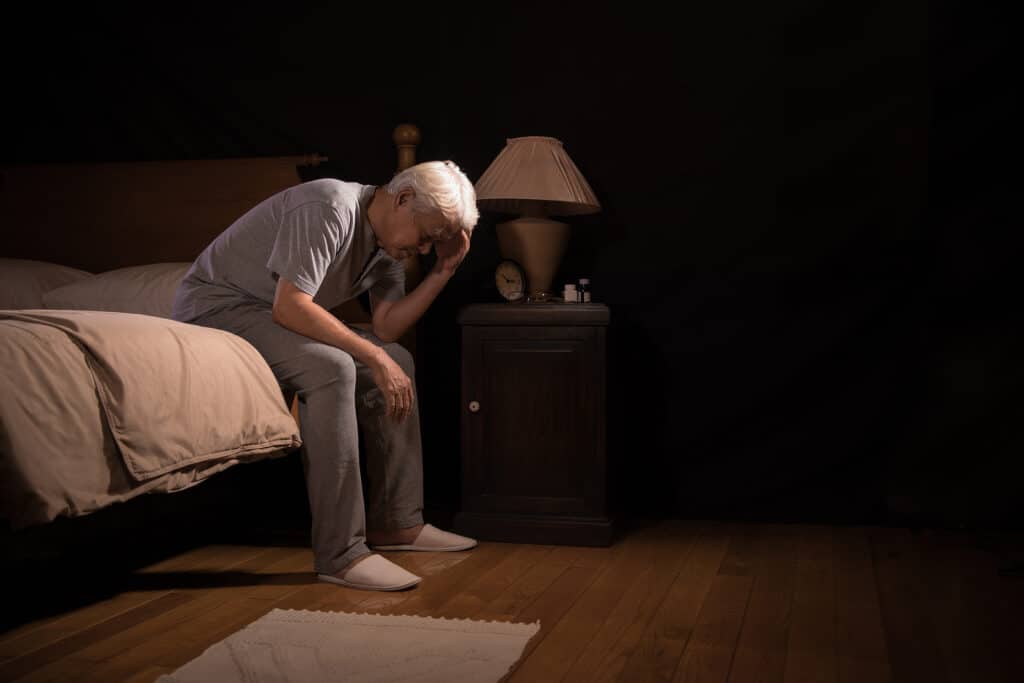Are you suspecting that your aging loved one may be sleepwalking? You may want to consider 24-hour care at home. While sleepwalking (otherwise known as somnambulism) usually affects children the most, it can affect older adults as well. Even those who have never had an issue with sleepwalking (at least that they know of).
It could be that you’ve seen your older loved one walking around at night during activities that seem a bit strange or having conversations that aren’t quite sensical. He might mention to you that lately, he’s noticed dirty dishes in the sink he doesn’t remember using or he’s waking up somewhere that he didn’t fall asleep at.
Table of Contents
Toggle24-hour Care at Home
If sleepwalking is a possibility, you might consider hiring someone to stay with your loved one overnight from a company that provides 24-hour care at home. 24-hour care at home doesn’t mean they live with your loved one, but they can be asked to be in the home during the overnight hours for observation and intervention if needed.
Several factors could account for this new night-time activity of your elderly loved one.
Stress
Too much stress may not let your loved one fall into the deep sleep he needs. And having a specific daytime stressful event can make sleepwalking more likely.
If your loved one is living through a particularly stressful time right now and having sleepwalking episodes, having a 24-hour care at home provider stay with him overnights might be helpful until the stressful situation is under control. Your loved one can also practice some stress-relieving exercises such as exercising, yoga, and meditation during the day so that he might sleep better at night.
Migraines
If your loved one suffers from repeated migraines, he could be more susceptible to having bouts of somnambulism. On days when his migraines are especially bad, he might find himself walking around the house while he’s sleeping, or perhaps even trying to go outside. On those migraine days, having someone else in the home with your loved one, such as a provider from a 24-hour home care organization, can help make sure he stays safe even if he doesn’t stay in bed.
Breathing Disorders
If your loved one has obstructive sleep apnea or another breathing disorder, his body may be woken up in the middle of the night frequently when he stops breathing. This could lead to sleepwalking and should be treated to avoid the other health issues and concerns that come along with breathing disorders.
Medications
Some medications, especially sleep medications, can lead to sleepwalking. But other medications such as beta-blockers and antidepressants may also lead to sleepwalking. If your loved one has just started a new medication and has started sleepwalking, talk to his doctor about the dosage and possibly switching medications to keep him safe at night.
Sleepwalking in and of itself is usually not dangerous, the danger lies in what an adult may do while sleepwalking – like turn on the stove or drive a car. Because of that, having someone help keep your sleepwalker safe is important.
Providing exceptional 24-Hour Care at Home for seniors and families in the Northern Virginia area, including Arlington, Alexandria, McLean, Reston, Burke, Ashburn, Centreville, Springfield, Manassas, and Oakton. Call today to speak with our caring staff: (703) 272-8838.
- What Are Some Surprising Early Signs of Dementia? - May 22, 2025
- Training of the Month: Lymphedema - May 15, 2025
- Career and Opportunities Fair - May 15, 2025




